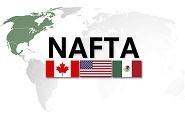Government/Policy

August 9, 2017
Automakers Resist Changes to NAFTA Rules of Origin
Written by Sandy Williams
NAFTA renegotiations are under way and automakers are concerned about changes to rules of origin for automobiles. Strengthening the rules could make U.S. auto and manufacturing sectors less competitive globally, warned speakers at a Motor & Equipment Manufacturers Association (MEMA) event on Wednesday.
Representatives of American and international automotive producers charged that stronger rules of origin would upset the balance between U.S. competitiveness and U.S. jobs and production.
“We already have a very good balance. You can see what’s happening,” Global Automakers President and CEO John Bozzella said. “We’re growing this sector, we’re growing exports, we have an opportunity to grow more exports, so I think we have to be very, very careful when we start to examine that mechanism that we don’t upset that balance. We already have a very, very strong rule in creating the right balance between North American competitiveness and U.S. production and U.S. jobs.” Global Automakers represents international automakers including Toyota, Honda and Nissan.
Charles Uthus, Automotive Policy Council Vice President for International Policy Global Automakers, which represents Ford, GM and Fiat-Chrysler, argued that setting the rules of origin too high could negate NAFTA benefits by compelling automakers to pay U.S. tariffs instead of meeting the “administrative burdens” to comply with rules of origin and receive duty-free treatment.
Changing the rules, said Uthus, has nothing to do with the Trump administration goals of bringing manufacturing jobs to the U.S. or reducing the trade deficit.
There was mixed reaction to adding steel to NAFTA’s tracing list to count imported steel as non-NAFTA input when evaluating what percentage of a vehicle is produced regionally. Global Automakers and AAPC said they were open to the idea, while not indicating support.
Ann Wilson, MEMA’s senior vice president of government affairs, said her group opposes the addition of steel to the tracing list, citing the unavailability of some types of steel domestically, such as tire cord.
Changes to NAFTA rules of origin may have significant regulatory and compliance costs that could make U.S. manufacturers less competitive, said Linda Dempsey, National Association of Manufacturers Vice President for International and Economic Affairs.
“If we add regulatory rules or changes, massive changes to rules of origin that increase complexities and increase red tape, if we put up new barriers, and if we do all the types of things we’re trying to get rid of domestically in the United States, if we do that through NAFTA, we become less competitive as manufacturers,” she said.
Uthus also challenged the assertion by Commerce Secretary Wilbur Ross that the current rules of origin provide a loophole for circumvention of parts from other countries. It “just doesn’t exist,” said Uthus.
“So frankly, I am yet to be convinced that there is any serious issue of circumvention or any other issue requiring a change in the rule of origin,” he said. “It’s already extremely high, it’s extremely rigorous. It doesn’t allow for circumvention. There isn’t a need for dramatic changes.”
Dempsey agreed, noting that measures are already in place in the NAFTA region to deal with unfair trade from other countries, measures that can be strengthened. “We can deal with that, but we don’t need to upend the whole rule of origin to do so,” she said.
Canadian manufacturers have expressed similar concerns about changes to rules of origin. The Business Council of Canada met with Canada’s NAFTA negotiator Steve Verheul to endorse a “do no harm” policy that called inclusion of country-specific rules of origin “detrimental.”
The Conference Board of Canada said “trade uncertainty is one of the greatest risks for Canada’s motor vehicle manufacturing sector,” in its latest outlook for the Canadian auto industry
“Currently, light autos, engines and transmissions must have 62.5 percent North American content before they can be imported duty-free into Canada. These changes [to rules of origin] are likely to take one of two forms—an increase in the current levels of required North American content, or the imposition of U.S.-specific content requirements. If too restrictive, changes in the rules of origin embedded in NAFTA could reduce the attractiveness of the region for auto-related investment.”
(Material for this article was sourced from World Trade Online)







